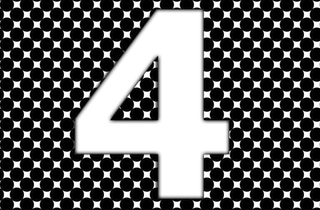By Mark O’Brien, Senior Criminal Justice Policy Associate
How can drug related offenses affect your future? Here, we review four (4) federal legal principles that can get in the way of recovery, and outline what we’re doing to fight them. Then, we invite you to share more about your experiences – or to ask questions – in the comments section at the end.
A criminal record will follow you
The American Bar Association’s Collateral Consequences Project has identified over 45,000 legal and regulatory barriers that burden people because of a criminal record. These laws and policies, often referred to as collateral consequences or criminal record barriers, exist in Federal, state, and local laws. They impact the ability of people to live with their families, have the security of knowing that a safety net is there if they need help, and advance in their education and career.
Substance abuse is currently punishable by law
Substance use disorders are chronic health conditions, and people with substance use disorders need treatment and support. Yet many of these laws single out people with drug-related convictions or histories of drug or alcohol misuse for especially harsh treatment.
Below are four collateral consequences in federal law that apply specifically to drug offenses and past drug use.
Federal law and drug offenses
1. Denial of nutrition assistance and public benefits.
Federal law prohibits anyone convicted of a drug-related felony from receiving nutrition assistance through the Supplemental Nutrition Assistance Program (SNAP, formerly food stamps) or cash assistance through the Temporary Assistance to Needy Families (TANF) program.
Although states may opt-out of the ban or modify it in different ways, the law creates a lifetime ban for people with drug felony convictions. Drug felonies can include simple possession of marijuana or other drugs.
Still, the law creates a lifelong burden for a person and their family for conduct with widely varying degrees of seriousness that might have occurred many years ago. Fortunately, many states have modified the ban or opted out of it. You can learn more about the ban and approaches to modifying or opting out by visiting LAC’s advocacy toolkit, “Opting Out of the Federal Ban on Food Stamps and TANF”.
2. Public housing restrictions.
Federal laws and regulations limit access to public and federally assisted housing for people with drug convictions or histories of drug or alcohol misuse. Further, the person also does not have to have been arrested or convicted for the suspected drug or alcohol misuse. These policies include a three-year ban on admitting any person who has been evicted from public housing because of substance misuse as well as their family.
Laws give permit housing authorities and landlords to deny people housing for a “reasonable time” after they have engaged in drug use. The amount of time to consider is left in the sole discretion of the housing authorities and landlords. Nobody is required to consider if the person has completed substance use disorder treatment or to acknowledge that even for people who are doing well in recovery, relapse can occur since addiction is a chronic illness. To learn more about these policies, read the National H.I.R.E. Network’s “National Blueprint for Reentry: Equal Opportunity Housing for People with Criminal Records”.
3. Barriers to working in health facilities.
Federal law bars people with certain types of convictions from working in the health care industry. The law applies to workers with a wide-range of convictions, including convictions for most drug-related offenses. It includes permanent exclusions from employment in health facilities that participate in federal health care programs like:
- Medicare
- Medicaid
- State Block Grant programs
Health care job barriers are not limited to specific positions. A person with a past misdemeanor drug-conviction, for example, could be prevented from working in a maintenance job on the grounds of a health facility. The law applies to people whose substance use disorder contributed to their criminal justice involvement even if they have participated in treatment and gotten healthy.
Similar restrictions in federal and state laws apply to other industries. To learn more about LAC’s work to reduce employment barriers, visit our Criminal Records and Employment web page.
4. Financial aid ban for students with drug convictions.
In 1998, the Higher Education Act was amended to prohibit anyone with a drug conviction from receiving federal financial aid for college. The ban has since been limited to prohibit financial aid only for convictions for conduct that occurred while a student was receiving financial aid. The ban is not permanent, but varies in length depending on the type of drug conviction. It interrupts education for thousands of students even if they complete or actively attend addiction treatment. Learn more about employment and education barriers by visiting LAC’s employment and education resources.
We are fighting to eliminate these barriers
At Legal Action Center, we fight to eliminate barriers like these that keep people with histories of addiction or criminal records from having a second chance or a fresh start. LAC advocates for the elimination or modification of legal and policy barriers for people with criminal records that do not improve public safety.
In cases where it makes sense to consider a person’s criminal record for an employment decision, housing application, college admission, or other opportunity, consideration should also be given to the nature and seriousness of the criminal record, how it relates to their ability to safely participate in the opportunity, and evidence of rehabilitation like drug treatment, a solid work history, or community involvement. You can learn more about our work on criminal justice barriers here.
Are you facing legal consequences of drug use?
Please leave us a message below. We’ll try to get back with you personally and promptly.









Related Posts